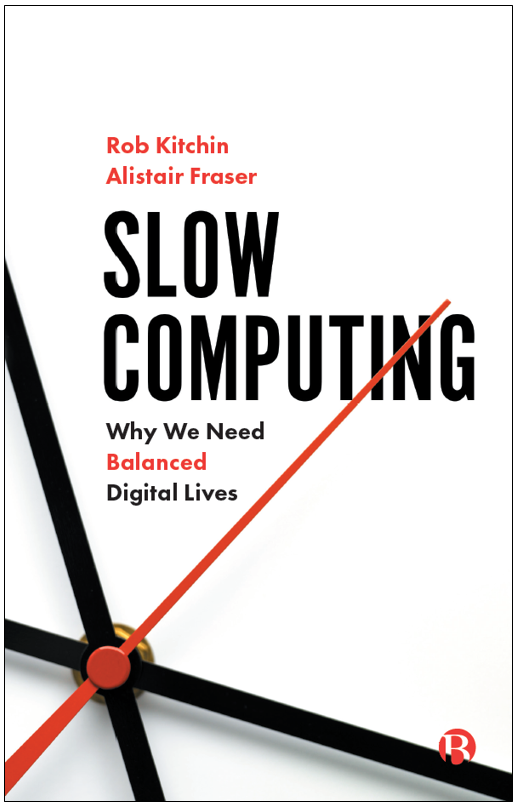
A BOOK ABOUT TAKING CONTROL OF OUR DIGITAL LIVES
By Rob Kitchin and Alistair Fraser
Digital technologies should be making life easier. And to a large degree they do, transforming everyday tasks of work, consumption, communication, travel and play. But they are also accelerating and fragmenting our lives affecting our well-being and exposing us to extensive data extraction and profiling that helps determine our life chances.
Is it then possible to experience the joy and benefits of computing, but to do so in a way that asserts individual and collective autonomy over our time and data?
Drawing on the ideas of the ‘slow movement’, Slow Computing sets out numerous practical and political means to take back control and counter the more pernicious effects of living digital lives.
1 Living Digital Lives (PDF)
2 Accelerating Life
3 Monitoring Life
4 Personal Strategies of Slow Computing
5 Slow Computing Collectively
6 An Ethics of Digital Care
7 Towards a More Balanced Digital Society
Coda: Slow Computing During a Pandemic (PDF)
ISBN 978-1529211269
Bristol University Press, £14.99 or $26.00; 20% discount (£11.99 or $20.80) at: Bristol University Press, or £9.75 if sign up for BUP newsletter. Select ‘Click to order from North America, Canada and South America’ to get dollar price.

